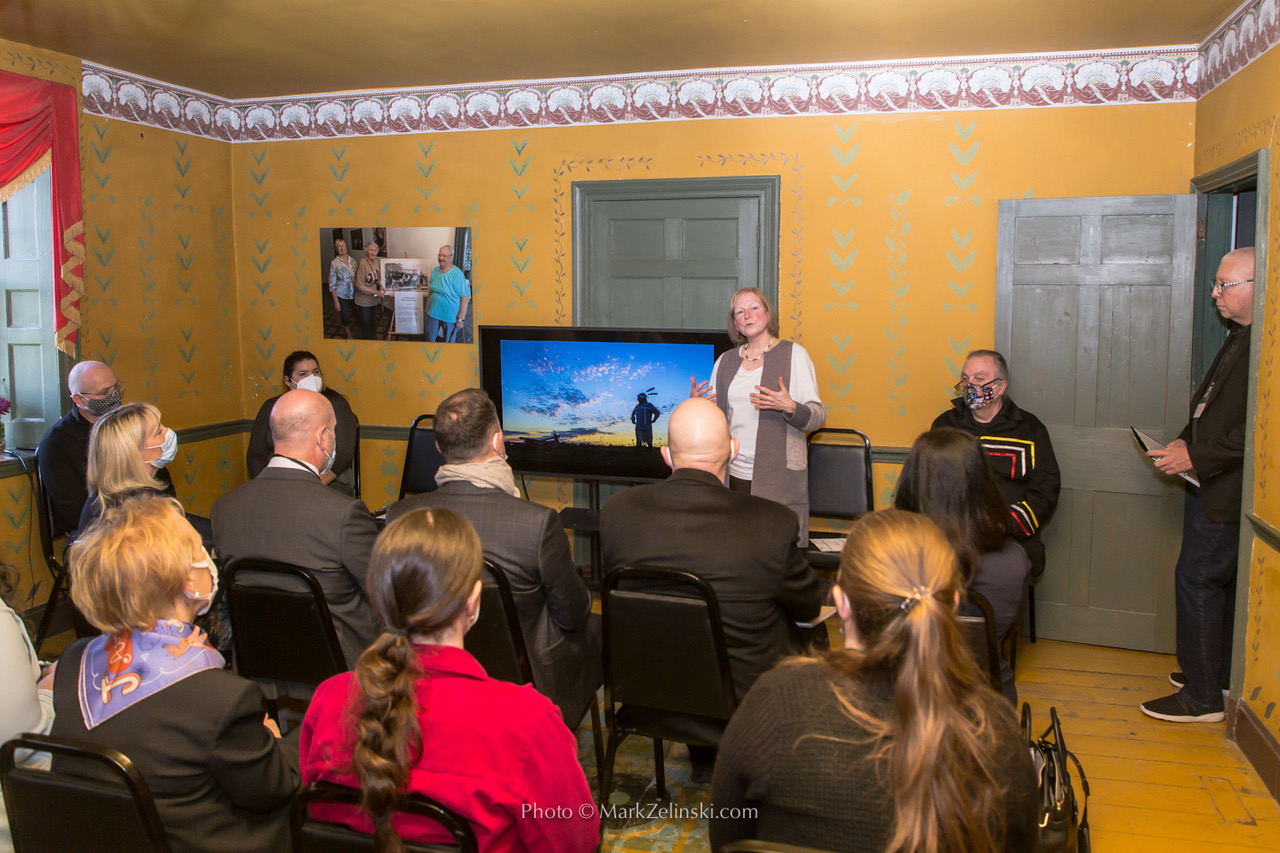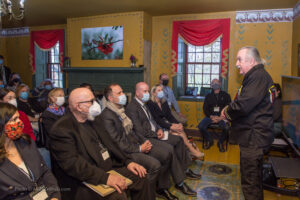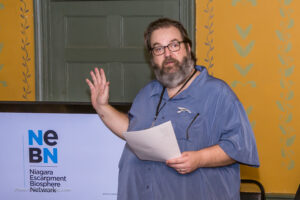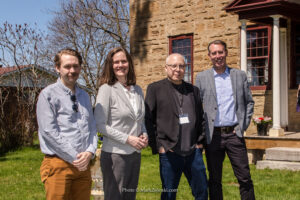NIAGARA ESCARPMENT BIOSPHERE NETWORK BLOG
23/08/2022
Launch of Niagara Escarpment Biosphere Network
23/08/2022

Working Together to Sustain the Niagara Escarpment Biosphere and Address Environmental Challenges
The Niagara Escarpment Biosphere Network, a community-led grassroots organization, was introduced to the public during an official ceremony held at The Brown Homestead on April 22, 2022. The organization becomes the official entity working on the mandate and designation of the Niagara Escarpment Biosphere in consultation with UNESCO.
Significant progress is being made to ensure the sustainability of the UNESCO designated Niagara Escarpment Biosphere that currently runs west from Niagara, and then north to Tobermory, extending some 700+ kilometres. Supported by a three-year grant from Environment and Climate Change Canada, the Indigenous non-governmental organization Plenty Canada will be partnering, nurturing, and assisting in the development of the emerging Niagara Escarpment Biosphere Network.

The Niagara Escarpment Commission transferred its role and responsibilities related to the Niagara Escarpment Biosphere to the Transition Leadership Committee in 2019. Since that time, the Committee has been working directly with Plenty Canada to reactivate the work necessary to meet UNESCO criteria and obligations regarding the stewardship of biosphere reserves.
“With the UNESCO review coming up in 2024, it is essential that this effort commences in order to protect the diverse ecosystems, lands, and waters, that comprise the Niagara Escarpment Biosphere,” said Liette Vasseur, UNESCO Chair on Community Sustainability at Brock University and member of the Niagara Escarpment Biosphere Transition Leadership Committee that has partnered with Plenty Canada.

Part of the rationale by UNESCO for directing a renewed Niagara Escarpment Biosphere model was that it was no longer appropriate to have oversight nested within a government agency, namely the Niagara Escarpment Commission. In 2021, the Transition Leadership Committee and Plenty Canada signed a memorandum-of-understanding to work together on developing this new co-governance structure. Work has progressed well and in March 2022, the Niagara Escarpment Biosphere Network became officially incorporated under provincial regulations. The Network is now the official entity that is working on the mandate and designation of the Niagara Escarpment Biosphere Region.
“Knowing how important this work is, we look forward to securing the precious ecosystems and unique flora and fauna that make the Niagara Escarpment Biosphere so special,” said Larry McDermott, Plenty Canada executive director. “Our work with the Transition Leadership Committee has already been productive, particularly in the development of a framework that incorporates the strengths of Indigenous knowledge and ways of knowing with the strengths of Western science, for the benefit of all. Our projects with Brock University and Guelph University, for example, are already yielding good results.”
The event celebrated the incorporation of the Niagara Escarpment Biosphere Network, Earth Day, and the launch of the United Nations Decade of Indigenous Languages. Speakers included Andrew Humeniuk, executive director of The Brown Homestead; Liette Vasseur, UNESCO Chair on Community Sustainability at Brock University; Larry McDermott, executive director of Plenty Canada; Bradley May, Niagara Escarpment Biosphere Network board member and Brock University professor; Lynn Wells, interim president of Brock University; Sean Kennedy, president of Niagara College Canada; Alyssa General, Kanien’kéha language educator; and Walter Sendzik, mayor of St. Catharines. All conveyed good words about working together to sustain the Biosphere.
Organizations represented included the City of St. Catharines, Six Nations of the Grand River, Niagara Regional Native Centre, Town of Lincoln, Brock University, Niagara College Canada, Guelph University, Bruce Trail Conservancy, Niagara Parks Commission, Niagara Peninsula Conservation Authority, Royal Botanical Gardens, Niagara Escarpment for Sustainable Tourism, Trout Unlimited Canada, Cootes to Escarpment EcoPark System, The Brown Homestead and Plenty Canada, of course, and many others. The proceedings set the stage for serious engagement across the entire Niagara Escarpment Biosphere over the next several years.
“This critically important effort will enhance the sustainability of the biosphere and bring new perspectives to achieve our mandates related to conservation, sustainable development, climate change action, and providing ecosystem services to all, while having a positive co-governance approach,” said Vasseur.

